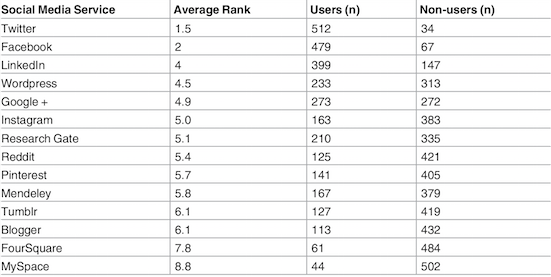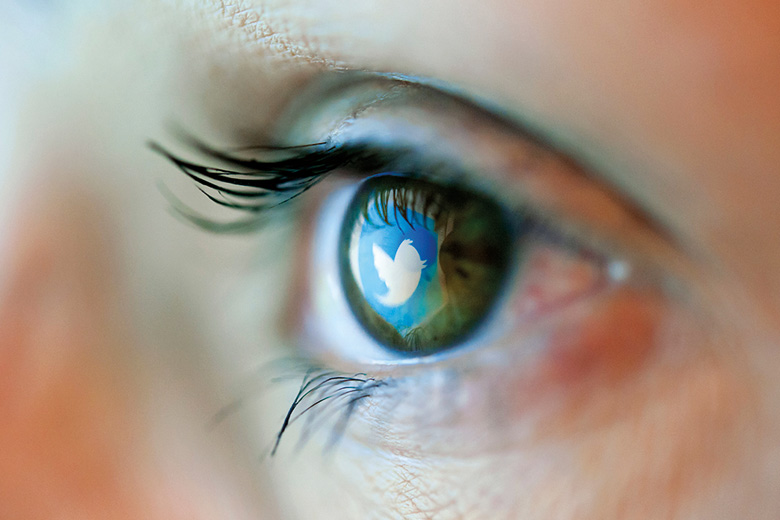Social Media Accelerates Science
Social Media Accelerates Science
How researchers are taking advantage of Twitter and other forums to do, share, and discuss research

Send us a link
How researchers are taking advantage of Twitter and other forums to do, share, and discuss research

A collectionof YouTube’s most popular and emerging science channels.

A guide on how to make Twitter work for academic purposes.
The paper shows how scientists in a variety of disciplines use social media platforms such as Twitter, Facebook, LinkedIn, or blogs, to exchange scientific knowledge.

Authorea, The Winnower, and Reddit are teaming up to explore the role of social media in research and discovery. We want to hear from you, in essay form!

Metrics derived from Twitter and other social media are increasingly used to estimate the broader social impacts of scholarship. Such efforts, however, may produce highly misleading results, as the entities that participate in conversations about science on these platforms are largely unknown.

Your definitive guide to using social media as an academic
Like the phone, typewriter, or parchment and ink, social media is a tool for communicating with our fellow humans. It’s the best we’ve ever had, in fact.
Dean Burnett: Some scientists argue that social media use is pointless. This scientist disagrees.

We should not have to parade ourselves on social media to please our employers or be considered enthusiastic

Using the “#arseniclife” controversy as a case study, we examine the roles of blogs and Twitter in post-publication review.

Figshare has brought science publishing into the digital age so that academics can publish and share their research fully

Characteristics of images and perceptions of professionalism and attractiveness on academic social networking sites

David Matthews examines the approach of ResearchGate, Academia.edu and Mendeley to profit, user data and open access publishing

Interview with Ijad Madisch, co-founder and CEO of the world’s largest online network for scientists

US analysis questions link between Twitter success and scholarly merit, raising doubts about the use of social media data in altmetrics.

Not only are scientific articles that have strong coverage in social media likely to be cited more in the future, social media is also the tool that allows us to communicate directly with the general public.
How scientists can use Twitter to expand their social contacts and find jobs.
The PLOS Pathogens team reflects on their most widely shared article and the benefits and pitfalls of sharing science research on social media.

The research blog has become a popular mechanism for the quick discussion of scholarly information. However, the characteristics of this form of scientific discourse are not well understood, for example in terms of the spread of blogger levels of education, gender and institutional affiliations.